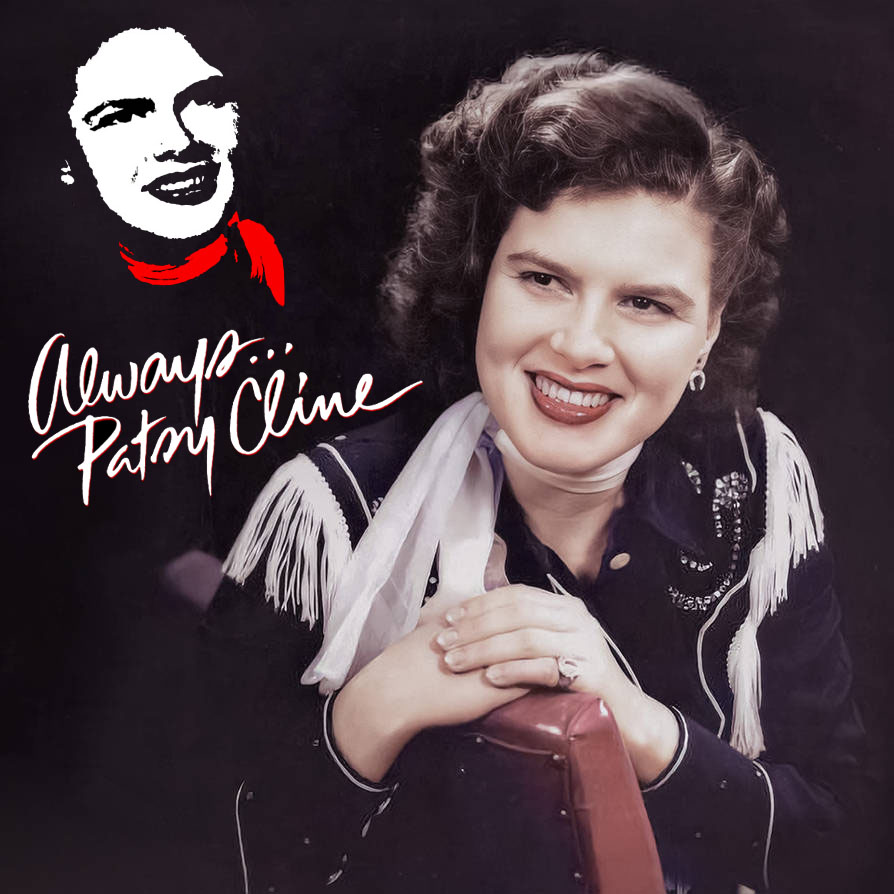
“Always”: A Timeless Echo of Unwavering Devotion
Ah, “Always.” Just the title itself whispers of enduring sentiment, doesn’t it? For those of us who remember the golden age of country music, the very mention of Patsy Cline evokes a cascade of memories, a warm wave of nostalgia for a voice that could crackle with heartache and soar with unwavering hope all in the same breath. Hers was a gift, a rare and pure instrument that transcended genres, touching souls whether they swore by country fiddles or orchestral swells. And “Always” is a testament to that timeless quality, a song that speaks to the deepest roots of love and commitment.
Now, it’s important to clarify the journey of Patsy Cline’s rendition of “Always”. While it feels as though it should have been one of her seminal hits from her tragically short but brilliant career in the early 1960s, her chart success with “Always” actually came much later. The iconic song, penned by the incomparable Irving Berlin way back in 1925, was recorded by Patsy Cline during her sessions with Decca Records in the 1960s. However, it wasn’t released as a prominent single at that time. It was after her untimely death in 1963, when her legacy began to truly blossom, that the song found its moment. In 1980, MCA Records, Cline’s label, released an album simply titled “Always”. This album featured several of Cline’s recordings, with some of them, including the title track, given new overdubbed arrangements by her longtime producer, Owen Bradley. This posthumous release of “Always” became a hit, reaching No. 18 on the US Hot Country Songs chart in 1980. Imagine that – nearly two decades after her passing, her voice was still gracing the airwaves and touching new generations, a testament to her enduring power. The album itself also performed well, peaking at No. 27 on the US Top Country Albums (Billboard) chart. This wasn’t merely a re-release; it was a re-discovery, a loving polish applied to a gem that deserved to shine.
The story behind Irving Berlin’s creation of “Always” is as poignant as the song itself. He wrote it as a wedding present for his bride, Ellin Mackay, whom he married on January 4, 1926. It was a deeply personal expression of his boundless affection and promise. The lyrics themselves are a simple yet profound vow of eternal devotion, a pledge that transcends time and circumstance: “I’ll be loving you always / With a love that’s true always.” It’s a sentiment as old as time, yet when sung by Patsy Cline, it takes on a new layer of raw, authentic emotion. She didn’t just sing words; she felt them, infusing every note with a genuine warmth that made you believe in the power of enduring love, even in the face of inevitable trials.
For older readers, “Always” resonates with a particular depth. It speaks to the kind of love that we’ve seen endure, perhaps in our own lives, or in the lives of our parents and grandparents. It’s the steadfast love that weathers storms, celebrates joys, and simply is. In an era that sometimes feels fleeting and disposable, Patsy Cline’s “Always” is a comforting anchor, a reminder of the values that truly matter. It evokes memories of simpler times, perhaps dancing slowly in a dimly lit hall, or whispering promises under a starlit sky. Her rendition, with its rich, almost mournful yet ultimately hopeful delivery, captures the essence of that enduring human need for connection and unwavering loyalty. It’s a song that settles into your heart and stays there, “always.”